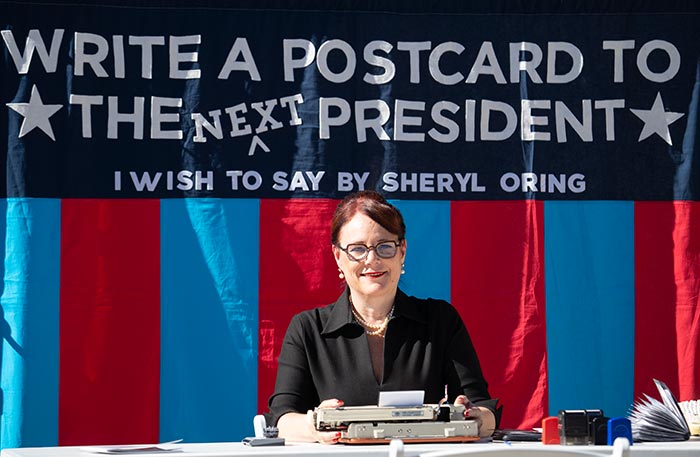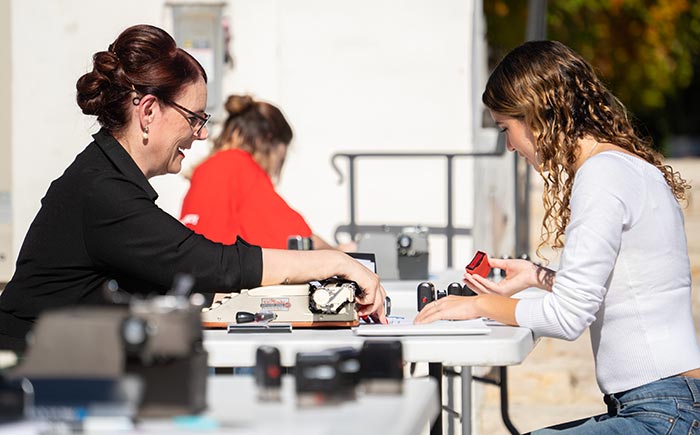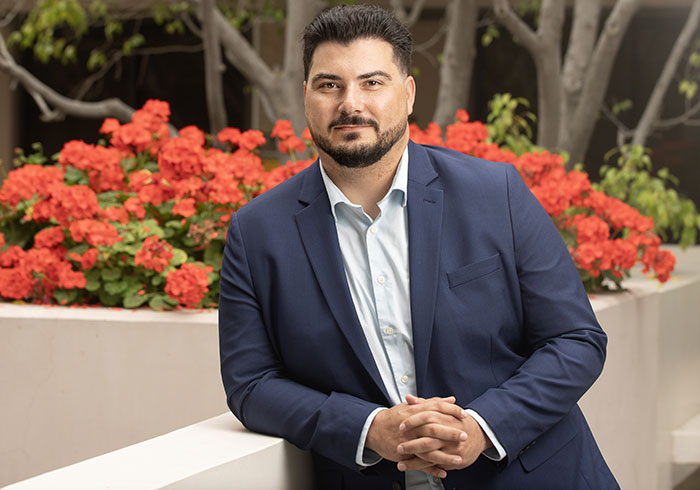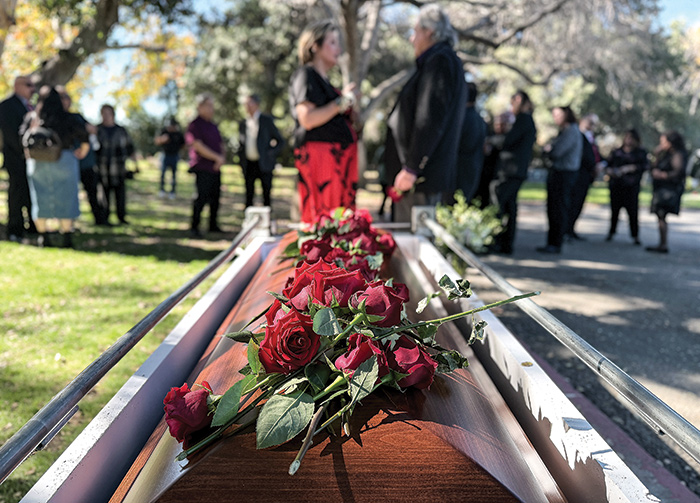Speaking truth to power: ‘I Wish to Say’ returns to Claremont

Sheryl Oring brought her “I Wish to Say” postcard writing campaign to Scripps College on Wednesday. Courier photo/Andrew Alonzo
by Andrew Alonzo | aalonzo@claremont-courier.com
In 2008 Sheryl Oring brought her unique “I Wish to Say” postcard writing campaign to Pitzer College, with a goal of spotlighting people of color, primarily women, who were often left out of important political conversations.
“I Wish to Say” was inspired by her grandmother who was a secretary at University of Maryland, and her own disconnect with politics. The visual hook was ingenious: Oring donned secretary garb, grabbed a typewriter, and hit the streets in the Bay Area to record what people wished to say to the president to be.
She’s since written more than 4,600 postcards across numerous cities, mostly on the east coast. On Wednesday, Oring added about 40 postcards to that tally when she returned to the Claremont Colleges and invited the community to express themselves about President-elect Donald Trump. Dozens of students and faculty came out to make their feelings known.

“I Wish to Say” creator Sheryl Oring guides a Scripps College student through the postcard writing process on Wednesday. Courier photo/Andrew Alonzo
The origins of “I Wish to Say” date back to 2004, during former President George W. Bush’s reelection campaign.
“There were several factors that led to it,” Oring said. “It was really the election in 2004, feeling like ordinary people were not part of the conversation in the election. And that was really what led me to go out on the streets with a typewriter and ask people what they think.”
The 58-year-old said she hadn’t planned on it becoming a two decade project, “but now that I have been doing it, it feels like that’s what had to happen. That’s what it was meant to be.” The sheer volume of postcards, “tells me that there are people with something to say, if only someone would listen.”
Using a typewriter to peak people’s curiosity has turned out to be a great choice.
“The typewriter really draws people in and opens up the conversation in a different way than if I were there with a laptop or just a notebook,” Oring said. “I found it to be a really effective way to break down barriers and open up conversations with strangers who may not otherwise want to talk to me.”
The campaign has become equal parts listening and typing.
“I’m not a therapist or a psychiatrist, psychologist, etcetera, but what I am is someone who is really skilled at listening, and the thing that I think happens is that people see me listening and they see me taking down every single word, so they know that they’re being taken seriously,” she said. “And I feel like that’s very empowering for people and sometimes very emotional too.
“That moment where I see someone’s eyes light up and they see that someone is taking them seriously, I feel like that is a really important moment and could lead to them doing all kinds of great things in the future. So I feel like it’s an investment in our future.”
Though technology and topics have evolved since the campaign’s inception, the aim of the project has not.
“The goal is to empower people and to encourage people to think about what’s important to them, what change they would like to see in the world,” she said. “Maybe they’ll also give a little bit of thought of to how that might be possible.
I think that people are hungry for this kind of personal interaction, and that’s proved to be very powerful.”
More info on the “I Wish to Say” campaign is at sheryloring.org.










0 Comments